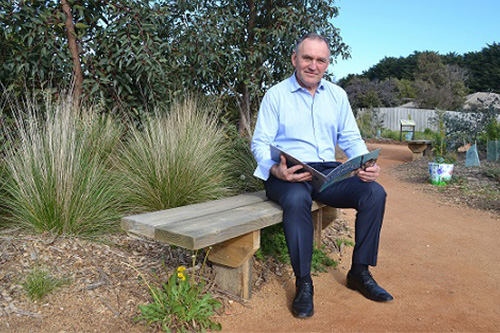
Each year, the Australian Principal Occupational Health, Safety and Wellbeing Surveys paint a picture of increasing workloads, higher stress and intensifying violence and intimidation against the nation’s school leaders.
For all these reasons and more, a single day on the job as a school principal can sometimes feel like an eternity.
Having spent 50 years in the profession, this fact is not lost on Berwick Lodge Primary School principal Henry Grossek.
While he acknowledges that the job of principal is one of the toughest going, Grossek has managed to achieve a level of calm in his daily life as a school leader that escapes so many others.
With the 2020 school year around the corner, he shares five health and wellbeing tips that principals can use to make sure they don’t buckle under the immense pressures of the job.
- Compartmentalise
Grossek says one of the most important things he’s learned to do when the final school bell rings is to go home and leave the job where it belongs – inside the school gates.
“I’ve learned to compartmentalise my life far more efficiently as I’ve become more experienced,” Grossek told The Educator.
“When I leave school, I’m much better at switching off into a private life that is enriched by family, friends and other activities so I get time away from the issues I experience in my working life.”
- Know your limitations
Grossek said another helpful practice has been recognising the limitations of what he can and cannot do within the confines of his busy role.
“Over time, I’ve learned to worry less about that over which I can do little, and that requires a bit of psychological discipline,” he said.
“I ask myself ‘have I done the best I can?’ rather than ‘what more can I do?’. There’s a line you have to draw, or you will go down, and you will drag your school and your family down, too.”
Grossek said that while it’s unrealistic to expect that all of the pressure can disappear overnight, getting it back to a manageable level is doable.
- Make time for hobbies and health
In his spare time, Grossek is an avid writer of books and poems. Nearly a decade ago, he published a book titled: ‘Building the Education Revolution’, and has also published several rhyming children’s stories, called ‘Horizons’.
“I do engage in a lot of creative activities, which has helped a lot,” Grossek said.
“These things provide a good distraction from the heavy workloads that I sometimes have to deal with”.
Grossek said the long hours that principals often work can see them fall into bad health habits, and this is something he has been careful to avoid.
“In all my years as a school principal, I have always maintained a very strong interest in being physically healthy,” he said.
“This is very important because the sometimes-sedentary nature of the job means that health problems can creep up on you over time. Because of this, I have always had a good exercise and sport regime in my life”.
- Delegate, don’t micromanage
Grossek said that a leader who is mindful of his or her health should avoid micromanaging. The many different facets of the principal’s role, says Grossek, can mean that attempting to micromanage is often futile.
“This is a sure way to an early retirement on ill health. The key here is to put quality time into surrounding yourself with a team that covers all bases,” Grossek said.
“It’s important to share all of the load, pick out what you’re good at, but remember to delegate.”
Grossek says that in delegating, principals have a big say as to who gets what job and what training is involved.
“Work hard on getting the right people, and work hard on keeping them,” he said.
“If you’re reasonably successful in doing these things, it will make your job a lot better and a lot more enjoyable. It’s not a paradise of no stress, but it is all about minimizing stress as best you can.”
Grossek said at the end of the day, principals have to find a way to “take control of their own destiny”.
“For each person it’s different. If you’re sitting there waiting for someone to do it for you, it won’t work because they’re too busy looking after themselves,” he said.
“You have to show a little initiative yourself”.
- Don’t take it personally
The latest survey on principal health and wellbeing found increasing rates of violence, bullying and intimidation against school leaders.
The concerning upward trend of violence in particular was found in almost every part of Australia including: NSW, Victoria, Queensland, South Australia, Western Australia, and the ACT.
“At work, one of the things that can cause a lot of stress is angry parents. However, it’s important to remember that when a person is yelling at you, you should not take it personally,” Grossek said.
“Their anger might be directed at you, but more often than not, it isn’t personal. This is a person who has lost control of their emotions and is lashing out. People do personalise things. It’s less about you and more about them”.


